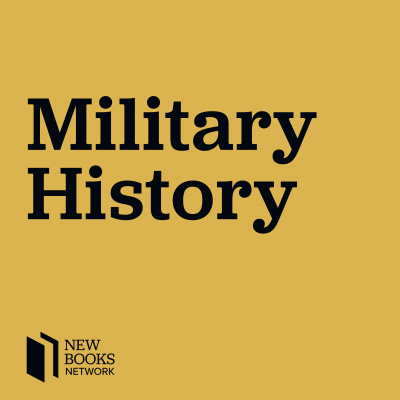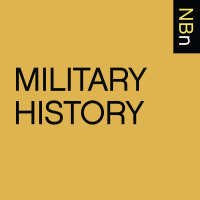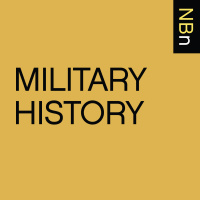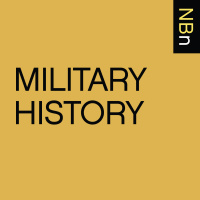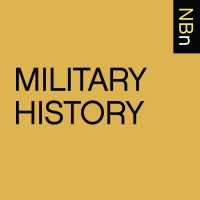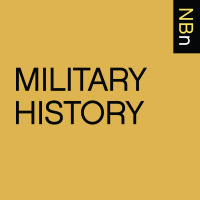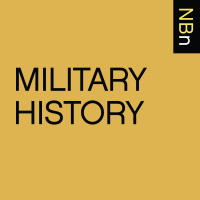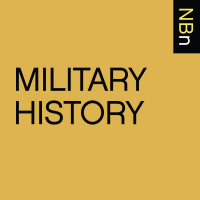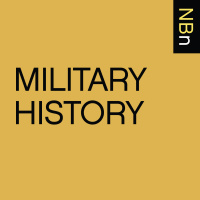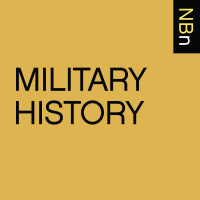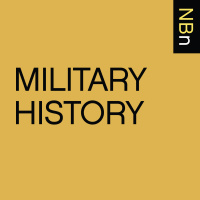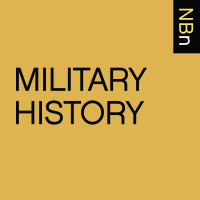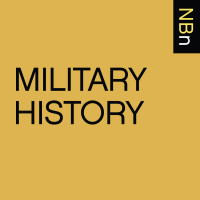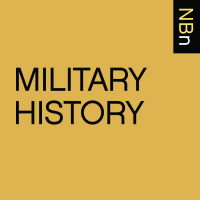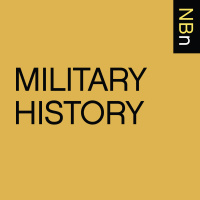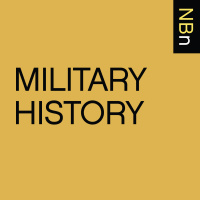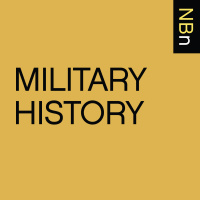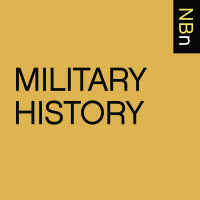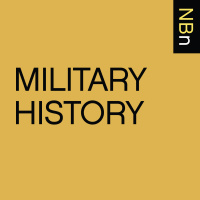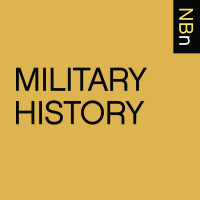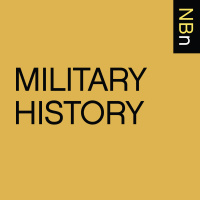Sinopsis
Interviews with Scholars of Military History about their New Books
Episodios
-
Asher Orkaby, “Beyond the Arab Cold War: The International History of the Yemen Civil War, 1962-68” (Oxford UP, 2017)
05/09/2017 Duración: 59minThe civil war in Yemen today harkens back to a similar conflict half a century ago, when the overthrow of the ruling imam, Muhammad al-Badr, in 1962 sparked a conflict that dragged on for the rest of the decade. While primarily driven by domestic politics, as Asher Orkaby explains in his book Beyond the Arab Cold War: The International History of the Yemen Civil War, 1962-68 (Oxford University Press, 2017), the fighting drew in a variety of foreign powers and multinational organizations, each with an agenda that played an important role in defining events. Despite the ongoing Cold War of that time, the United States and the Soviet Union found themselves in the curious position of both supporting the new republican government that took power in the aftermath of Badr’s ousting, though their involvement was quickly eclipsed by that of Egypt. Seizing the opportunity to advance his vision of Arab nationalism, Gamal Abdel Nasser dispatched thousands of troops to Yemen, where they soon found themselves in an i
-
Wendy Pearlman, “We Crossed a Bridge and It Trembled: Voices from Syria” (Custom House, 2017)
30/08/2017 Duración: 56minIn the wake of the Arab Spring and the ensuing Syrian Civil War, the stories of the millions displaced by the conflict as well as the millions Syria has lost since 2011 remain largely untold. Wendy Pearlman‘s We Crossed a Bridge and It Trembled (Custom House, 2017) attempts to fill that void. Almost entirely comprised of interviews with Syrian refugees, conducted in Arabic then painstakingly translated and organized to tell the story of the Syrian Civil War. Pearlman covers the period before the Civil War, the revolution itself and the tragic aftermath. Heartbreaking, inspiring, and informative all at once, We Crossed a Bridge and It Trembled is hopefully the first of many such compilations to tell the multifaceted Syrian story. NA Mansour is a graduate student at Princeton University’s Department of Near Eastern Studies working on the global intellectual history of the Arabic-language press. She tweets @NAMansour26 and produces another Middle-East and North Africa-related podcast: Reintroducing
-
Anthony Kaldellis, “Streams of Gold, Rivers of Blood: The Rise and Fall of Byzantium, 955 A.D. to the First Crusade” (Oxford UP, 2017)
23/08/2017 Duración: 56minIn the 10th century, a succession of Byzantine rulers reversed centuries of strategic policy by embarking on a series of campaigns that dramatically reshaped their empire. This effort and its consequences for the history of the region is the focus of Anthony Kaldellis‘s Streams of Gold, Rivers of Blood: The Rise and Fall of Byzantium, 955 A.D. to the First Crusade (Oxford University Press, 2017), which provides the first survey of this important era of Byzantine history written in over a century. Kaldellis sees the campaigns that began in the 950s as a consequence of the collapse of the Carolingian empire and the decline of the Abbasid caliphate, which provided the Byzantines with an opportunity to stabilize their southeastern frontiers and to extend and consolidate their holdings in the Balkans and in Italy. Effected through a combination of military conquest and traditional Byzantine “soft power,” the result was a greatly expanded domain, one centered now in Europe rather than in Asia. As
-
Hussein Fancy, “The Mercenary Mediterranean: Sovereignty, Religion, and Violence in the Medieval Crown of Aragon” (U of Chicago Press, 2016)
12/08/2017 Duración: 47minHussein Fancy’s book The Mercenary Mediterranean: Sovereignty, Religion, and Violence in the Medieval Crown of Aragon (University of Chicago Press, 2016) begins with the description of five Muslim jenets, or cavalrymen, journeying through Spain in 1285 to serve as soldiers for the crown of Aragon. As Fancy explains, these men were not outliers, but just a few of the many thousands who were employed by successive Aragonese kings over the course of the 13th and 14th centuries, and their service challenges many of our long-held assumptions of the divide between the Christian and Islamic worlds during the Middle Ages. For the kings of Aragon, hiring jenets gave them a powerful force of light cavalry that could be used to foster their imperial ambitions, while the jenets themselves saw their service for Christian kings as fully compatible with their tradition of jihad. By describing their relationship, Fancy’s work highlights one of the many ties that linked Christian Aragon to Muslim North Africa, two
-
Richard Rubin, “Back Over There” (St. Martin’s Press, 2017)
06/08/2017 Duración: 01h29minThe majority of the books we profile on New Books in Military History are traditional research narratives, monographs written by historians and authors seeking to present a particular campaign, organization, battle, or individual in detail. Once in a while, though, we take pride in introducing our listeners to projects that are more focused on how memory and history are intertwined, bringing the past to the present. In this episode, we speak with New York Times travel writer and amateur historian Richard Rubin about his own thoughts on the First World War and how it shaped a special relationship between many Frenchmen and the ideal of America that survives to this day. His most recent book, Back Over There: One American Time-Traveler, 100 Years Since the Great War, 500 Miles of Battle-Scarred French Countryside, and Too Many Trenches, Shells, Legends, and Ghosts to Count (St. Martins Press, 2017), is a deeply personal account of Rubin’s many walks across the Western Front and his encounters with local c
-
Gerben Zaagsma, “Jewish Volunteers, the International Brigades and the Spanish Civil War” (Bloomsbury Academic, 2017)
24/07/2017 Duración: 33minIn Jewish Volunteers, the International Brigades and the Spanish Civil War (Bloomsbury Academic, 2017), Gerben Zaagsma, Senior researcher at the centre for contemporary and digital history at the University of Luxembourg, discusses the participation of volunteers of Jewish descent in the International Brigades during the Spanish Civil War, focusing particularly on the establishment of the Naftali Botwin Company, a Jewish military unit that was created in the Polish Dombrowski Brigade. Zaagsma analyses the symbolic meaning of the participation of Jewish volunteers and the Botwin Company both during and after the civil war. He puts this participation in the broader context of Jewish involvement and Jewish/non-Jewish relations in the Left, and asks to what extent Jewishness and Jewish concerns mattered in the International Brigades and why the Botwin Company was actually created. To this end, the book examines representations of Jewish volunteers in the Parisian Yiddish press (both communist and non-communist).
-
Peter Eisner, “MacArthur’s Spies: The Solider, the Singer, and the Spymaster Who Defied the Japanese in WWII” (Viking, 2017)
20/07/2017 Duración: 01h36sThe conquest of the Philippines in 1942 brought thousands of Americans under the control of the empire of Japan. While most of them were interned or imprisoned for the duration of the war, a remarkable few evaded capture and fought on against the Japanese. In MacArthur’s Spies: The Soldier, the Singer, and the Spymaster Who Defied the Japanese in World War II (Viking, 2017), Peter Eisner describes the efforts of three of them John Boone, Claire Phillips, and Chick Parsons to incite an insurgency against the Japanese occupation. Facing long odds, they risked their lives to undermine Japan’s control, with Claire’s Manila nightclub supplying resources and information to Boone in the nearby countryside and the intelligence passed on to Chick and other officers working towards America’s return to the Philippines. Their efforts in association with that of others provided American and Filipino guerrillas with much-needed material, and smuggled in food and supplies to thousands of prisoners of
-
Isabella Ginor and Gideon Remez, “The Soviet-Israeli War, 1967-1973: The USSR’s Intervention in the Egyptian-Israeli Conflict” (Oxford UP, 2017)
19/07/2017 Duración: 59minThe title of Isabella Ginor and Gideon Remez‘s The Soviet-Israeli War, 1967-1973: The USSR’s Intervention in the Egyptian-Israeli Conflict (Oxford University Press/Hurst, 2017), tells you that this is a revisionist history, which argues that the Six Day War (1967) and the Yom Kippur War (1973) were not merely brief explosions of Arab-Israeli violence but part of longer sustained conflict between Israel and the Soviet Union. The role of Soviet “advisors” in Egypt in the period is well known. Using memoirs and testimony of Soviet veterans, Ginor and Remez show that the Soviet involvement was much more direct and provocative than previously understood. In addition, the authors significantly change our understanding of the eventual rapprochement between Egypt and the United States. The usual story relies heavily on the memoirs of Henry Kissinger, who naturally takes much of the credit for the supposed “expulsion” of Soviet advisors and the decision by Sadat after the war to mov
-
Jennifer T. Roberts, “The Plague of War: Athens, Sparta, and the Struggle for Ancient Greece” (Oxford UP, 2017)
16/07/2017 Duración: 56minThe Peloponnesian War was one of the first subjects of historical inquiry, and one that has been the subject of many works ever since Thucydides wrote his famous account of the conflict. Yet these works typically focus just on the decades when Sparta’s Peloponnesian League fought against the Athenian empire. In The Plague of War: Athens, Sparta, and the Struggle for Ancient Greece (Oxford University Press, 2017), Jennifer T. Roberts sets the war within the broader context of inter-state hostilities in 5th and 4th century Greece. As she explains, fighting between the two sides did not begin in 431, nor did it really end in 404. Instead the Peloponnesian War was just one of a series of conflicts that stretched throughout the Hellenic era, in which victories often simply set the stage for the next round of battles. Though Sparta may have defeated Athens in 404, by continuing the story beyond then Roberts shows how the new alignments that resulted transformed the city states in ways that led to Sparta’
-
Patrick N. Hunt, “Hannibal” (Simon and Schuster, 2017)
13/07/2017 Duración: 01h41minIn 218 BCE, the Carthaginian general Hannibal Barca launched an invasion of Italy designed to bring the Roman Republic to its knees. Yet for all of his success in defeating Rome’s legions on the battlefield, Hannibal ultimately failed in his lifelong goal. In Hannibal (Simon and Schuster, 2017), Patrick N. Hunt recounts the triumphs and frustrations of the legendary commanders dramatic military career. The son of a Carthaginian leader who fought Rome in the First Punic War, Hannibal was raised to reverse Carthage’s loss in that initial conflict. This he did by taking the fight to Rome, where his outnumbered armies triumphed over the Romans in three successive battles. Yet, as Hunt explains, Rome soon learned from Hannibal’s example, and the Carthaginians’ inability to translate battlefield victories into a Roman surrender left him mired in a war of attrition he could not win. By the time he faced a Roman army at Zama in 202 BCE, the situation was now reversed, as Scipio Africanus used
-
Robert M. Browning Jr., “Lincoln’s Trident: The West Gulf Blockading Squadron during the Civil War” (U. of Alabama Press, 2015)
10/07/2017 Duración: 54minThough the U.S. Navy’s blockade of the Confederacy has not received the attention devoted to the bloody campaigns on land, it was an important contributor to the Union’s victory in the Civil War. In Lincoln’s Trident: The West Gulf Blockading Squadron during the Civil War (University of Alabama Press, 2015), Robert M. Browning Jr. describes the operations of the blockade in the Gulf Coast region. At the start of the war the newly-formed West Gulf squadron was faced with the task of patrolling hundreds of miles of coastline, from the Florida port of Pensacola to the Rio Grande River. Initially composed of just a handful of ships, the squadron would often spend months stationed off the coast, attempting to interdict the blockade runners that aided the Confederate war effort by bringing in the supplies the Confederates could not produce themselves. As the war went on the squadron took on the formidable task of capturing the major Confederate ports, and under the command of David Farragut it was
-
Should the U.S. Have Entered World War One?
24/06/2017 Duración: 01h05minIn the inaugural podcast of Arguing History, historians Michael S. Neiberg and Brian Neumann address the question of Americas decision in 1917 to declare war against Germany. Together they discuss the factors involved in it, such as Germanys wartime provocations and the economic impact the war was having upon the nation. Yet it was more than just a product of the events of the conflict, as it came at a time when the role of the United States in the world was being redefined by its emergence as a major economic and financial power on the international scene. How Americans perceived this also played a role both in the decision to go to war, even though there was no consensus as to how the nation should respond to the consequences of their choice once they made it. Michael S. Neiberg is the Stimson Chair of the Department of National Security and Strategy at the U.S. Army War College and the author of Dance of the Furies: Europe and the Outbreak of World War I (Harvard University Press, 2014). Brian Neumann is a
-
Gary Kulik, “War Stories: False Atrocity Tales, Swift Boaters, and Winter Soldiers” (Potomac Books, 2009)
15/06/2017 Duración: 01h10minOne often hears stories of World War II and Korean War veterans who came back from the war and refused to talk about what they had experienced in combat. They neither wanted folks at home to know what had happened nor did they want to relive it themselves. It was just too horrible to relate. The truth about combat in those conflicts, so we are told, was therefore suppressed. In Vietnam, the truth was also suppressed, but in a different way and for altogether different reasons. As Gary Kulik demonstrates in his remarkable book ‘War Stories’: False Atrocity Tales, Swift Boaters, and Winter Soldiers–What Really Happened in Vietnam (Potomac Books, 2009), some Vietnam veterans came back from the war and, far from hesitating to tell their “war stories,” exaggerated and even invented them. This was particularly true of atrocity tales, which were both numerous and well broadcast. As Kulik explains, the point of these false atrocity stories was not to portray the “grunts” in a
-
Andrew Boyd, “The Royal Navy in Eastern Waters: The Linchpin of Victory, 1935-1942” (Seaforth Publishing, 2017)
14/06/2017 Duración: 01h27minIn the 1930s the Royal Navy faced the problem of defending its empire in eastern Asia and Australia against the formidable naval power of Japan. How they responded to this threat in the final years of peace and the first years of the Second World War, is the subject of Andrew Boyd‘s book The Royal Navy in Eastern Waters: The Linchpin of Victory, 1935-1942 (Seaforth Publishing, 2017; distributed in the US by Naval Institute Press). As Boyd explains, the challenge was one of defending British interests against a modern fleet that was qualitatively the equal of theirs. Efforts to implement a strategy, though, were disrupted by the growing threat of war in Europe, and the fall of France in the summer of 1940 forced the British to reassess their strategic assumptions. The growing priority the British gave to their interests in the Mediterranean and the Middle East during this time came at the expense of their preparations against Japan, leading the British to seek greater cooperation with the United States a
-
John P. Langellier, “Fighting for Uncle Sam: Buffalo Soldiers in the Frontier Army” (Schiffer, 2016)
08/06/2017 Duración: 58minFrom the American Revolution to the present day, African Americans have stepped forward in their nation’s defense. Fighting for Uncle Sam: Buffalo Solders in the Frontier Army (Schiffer, 2016) breathes new vitality into a stirring subject, emphasizing the role men who have come to be known as “buffalo soldiers” played in opening the Trans-Mississippi West. This concise overview reveals a cast of characters as big as the land they served. Over 150 images painstakingly gathered nearly a half century from public and private collections enhance the written word as windows to the past. Now 150 years after Congress authorized blacks to serve in the Regular Army, the reader literally can peer into the eyes of formerly enslaved men who bravely bought their freedom on the bloody battlefields of the Civil War, then trekked westward, carried the “Stars and Stripes” to the Caribbean, and pursued Pancho Villa into Mexico with John “Black Jack” Pershing. Growing up in Tucson, Arizo
-
Patrick J. Hayes, “The Civil War Diary of Rev. James Sheeran, Confederate Chaplain and Redemptorist” (Catholic Univ. of America Press, 2016)
23/05/2017 Duración: 58minDuring the Civil War Father James Sheeran served as a Catholic chaplain for the 14th Louisiana Infantry. Between his various responsibilities Sheeran kept a journal in which he recounted his experiences with, and observations of, life in the Army of Northern Virginia. As editor of The Civil War Diary of Rev. James Sheeran, Chaplain, Confederate, Redemptorist (Catholic University of America Press, 2016), Patrick J. Hayes has provided readers with the most complete edition yet of Sheeran’s manuscript, one that details the activities of a man of faith in a time of war. An immigrant from Ireland, Sheeran joined the Redemptorist congregation in the 1850s and was serving as a parish priest in New Orleans when the war began in 1861. As a military chaplain, Sheeran witnessed firsthand many of the key battles of the Civil War, from Second Manassas in 1862 to Cedar Creek in 1864, and his recorded observations provide a valuable record of those clashes. Yet Sheeran’s diaries also serve as a window into what
-
Michael Bryant,” A World History of War Crimes: From Antiquity to the Present,” (Bloomsbury, 2016)
18/05/2017 Duración: 01h14minMichael Bryant’s book is both less and more ambitious than its title. He’s writing less of a history of war crimes than he is a history of the idea and concept of war crimes. He’s most interested in what people have considered a breach of the norms of warfare and how this concept has changed over time. The triumph of A World History of War Crimes: From Antiquity to the Present (Bloomsbury, 2016) is it’s reminder that, while expectations about how soldiers (and others) would act during warfare are not new at all, the notion of war crimes is actually quite recent. Bryant argues that ideas about the proper conduct of war go back to the ancient Near East. But these ideas were rarely based on the dignity of human person. Instead they derived from religion or from the shape of the political institutions in society. It was only in the 18th and 19th century, in the aftermath of the Enlightenment, that norms about conduct during warfare began to be based on the idea that mistreating civilians o
-
Steve Dunn, “Securing the Narrow Sea: The Dover Patrol, 1914-1918” (Seaforth/US Naval Institute, 2017)
15/05/2017 Duración: 46minMost accounts about the naval battles of the First World War focus upon the stalemate between the British Grand Fleet and the German High Seas Fleet, or the German raiders who attempted to disrupt Allied commerce. In Securing the Narrow Sea: The Dover Patrol 1914-1918 (Seaforth Publishing, 2017; distributed in the US by Naval Institute Press), Steve Dunn focuses on the often overlooked service of the British naval forces stationed in the English Channel during the conflict. The eclectic collection of destroyers, converted yachts, and requisitioned trawlers that comprised the patrol made for a considerable contrast with the dreadnoughts at Scapa Flow, yet, as Dunn demonstrates, they played a vital role in securing the Channel for the safe transport of British troops to France and in opposing the transit of German U-boats to their stations. In describing the admirals who commanded the station over the course of the war, the lives of the men who served aboard the ships, and the various engagements which they fou
-
Lynn Dumenil, “The Second Line of Defense: American Women and World War I” (UNC Press, 2017)
18/04/2017 Duración: 48minWhen America went to war against Germany in 1917, the scale of the conflict required the mobilization of women as well as men in order to achieve victory. In The Second Line of Defense: American Women and World War I (University of North Carolina Press, 2017), Lynn Dumenil describes the many ways in which women participated in the war effort and the ways in which it transformed their lives. As she notes, in the years leading up to the war increasing numbers of American women were employed outside the home and involved in the public sphere. For many the politically-engaged among their number, the decision to go to war presented an opportunity to demonstrate their gender’s patriotism and worthiness for the vote. Thousands showed their support for the soldiers by participating in a variety of volunteer activities, with some even traveling to Europe to work in canteens or as nurses. Many more took up the jobs that the men left behind, filling the void created by their enlistment. These efforts were celebrat
-
Phil Gurski, “Western Foreign Fighters: The Threat to Homeland and International Security” (Rowman and Littlefield, 2016)
17/04/2017 Duración: 53minPhil Gurski‘s Western Foreign Fighters: The Threat to Homeland and International Security (Rowman and Littlefield, 2016) is his second recent monograph on terrorism, and another useful resource for practitioners and non-specialists alike. Written in an approachable, grounded style, Western Foreign Fighters is both topical and novel; its comparative analysis of volunteers’ participation in non-sanctioned conflicts both jihadist and secular is especially notable. Gurski’s measured, thoughtful analysis is a credit to the Canadian intelligence community (wherein he spent his entire career) and I look forward to his further publications.Learn more about your ad choices. Visit megaphone.fm/adchoices
